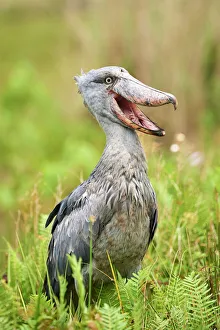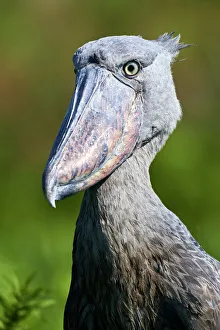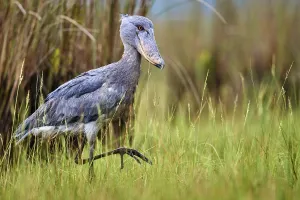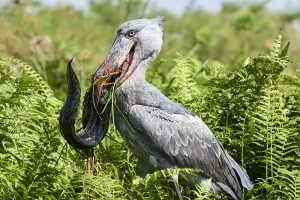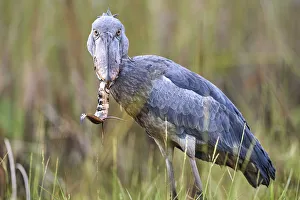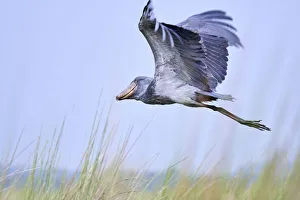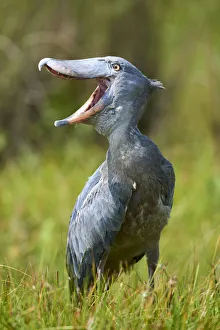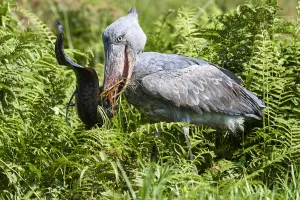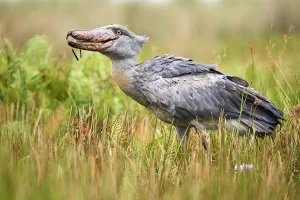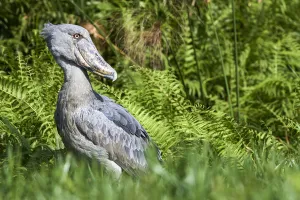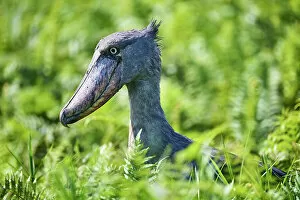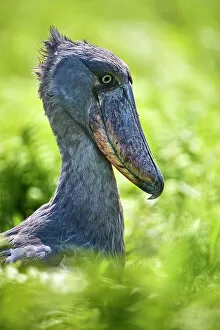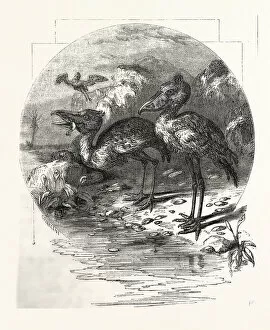Whale Headed Stork Collection
The majestic whale headed stork, also known as the Shoebill stork (Balaeniceps rex), can be found in the enchanting swamps of Mabamba
All Professionally Made to Order for Quick Shipping
The majestic whale headed stork, also known as the Shoebill stork (Balaeniceps rex), can be found in the enchanting swamps of Mabamba, nestled along the shores of Lake Victoria in Uganda. With its distinctive appearance and captivating presence, this remarkable bird never fails to leave a lasting impression. In one portrait, we witness the sheer magnificence of the Shoebill stork as it gazes into our souls. Its piercing eyes seem to hold ancient wisdom, while its unique bill stands out like a work of art against its feathery plumage. Truly a sight to behold. A female Shoebill stork is captured gracefully feeding on a Spotted African lungfish (Protopterus). The precision with which it maneuvers its bill to catch its prey showcases both strength and finesse. This incredible hunting technique highlights why this species has earned the nickname "whale headed. " As it takes flight through the swamps, wings spread wide and powerful, we are reminded of nature's ability to create creatures that defy imagination. The Shoebill stork soars above Mabamba with grace and elegance. With each vocalization echoing through the marshlands, these magnificent birds communicate their presence in an awe-inspiring manner. Their calls reverberate across Lake Victoria's tranquil waters—a testament to their place within this diverse ecosystem. Observing another portrait reveals intricate details that make up this extraordinary creature—the texture of feathers meticulously arranged for maximum efficiency during flight; every contour telling a story of resilience and adaptability. Captured mid-meal devouring a fish from Lake Victoria's bountiful waters, we witness firsthand how essential these wetlands are for sustaining life—both for humans and wildlife alike. The symbiotic relationship between species is beautifully showcased by these graceful hunters thriving amidst their natural habitat. During February's golden light, when nature seems most vibrant and alive in Mabamba, the Shoebill stork graces us with its presence.

